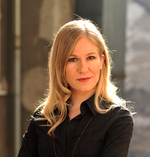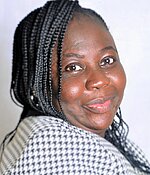Group 2: Innovative teaching methods


Comparative Group 2: Innovative teaching methods for adult and lifelong education
teaching methods, teaching Innovation, traditional and western methods
Teaching methods differ across civilizations. It is predicted on the culture and knowledge tools available in each community with which people are taught and nurtured for the betterment of the people and society. Some of these indigenous teaching methods have similarities and differences across civilizations and culture. Adult learners are learners with special needs and consideration; their experience has significant influence on what they prefer to learn, the purpose for which they learn, how and when they learn. Since indigenous methods are evident in traditional learning mode, natural and context-determining which form major parts of adult upbringing, this informal and learner-centered teaching method may be effective for adult learners. For comparative work in adult and lifelong learning, participants will explore various indigenous methods in their various cultures. They will compare, from various continents, the principles, practices and policies (if any) underpinning adoption of indigenous methods in teaching. They will work on how these methods may be adapted into the framework of andragogy and map out possible best and innovative practices adult and lifelong learning.
Comparative research question:
What teaching methods in adult education are dicussed as traditional one an which as innovative?
Context of comparison:
Context of comparison are in teaching methods you are exposed to in your course of studies in adult education in your universities. Teaching methods in adult education that are discussed in your language.
Categories of comparison:
Participants in the group will compare categories in teaching methods using the following as guide:
- Traditional teaching methods: Which teaching methods/ways of teaching are declared as traditional or conventional in adult education?
- Innovative teaching methods: Which teaching methods/ways of teaching are the known to be innovative in the context your studies in adult education? What are the argumentation for its innovative character?
- Other teaching methods: Which other teaching methods/ways of teaching are you studying in your studies in adult education?
- Transnational teaching methods: Which area can be named a "joint international" innovatively in adult teaching method?
References:
Amali, H. I (2014)The function of folktales as a process of educating children in the 21st century: a case study of Idoma Folktales. Proceedings of the International Conference on 21st Century Education at Dubai Knowledge Village – 2 (1) 88-97 Retrieved on 31-01-2016 from http:// www.21caf.org/uploads/1/3/5/2/13527682/amali.pdf ; Blumberg, P. (2008). Developing learner-centered teachers: A practical guide for faculty. San Francisco: Jossey-Bass; Gugliemino, L. M. (1986). The affective edge: Using songs and music in ESL instruction. Adult Literacy and Basic Education, 10, 19-26.
Dr. Bolanle Simeon-Fayomi, Obafemi Awolowo University Ile-Ife, Osun State, Nigeria
Dr. Simeon-Fayomi Bolanle Clara is a Senior lecturer in the Department of Adult Education & Lifelong Learning, Obafemi Awolowo University, Ile-Ife, Nigeria where she also serves as the postgraduate studies coordinator. She has her Ph.D in in Adult Education analyzing the various types of curriculum and policies used in the delivery of entrepreneurship education for university graduates. Her current research emphasis areas are in expounding thoughts and relations in Entrepreneurship Education, Employability & soft skills development and Innovative Adult Teaching Methods.
Dr. Tamara Nikolic Maksic, University of Belgrade, Serbia
Dr. Tamara Nikolic Maksic is Assitant Professor at the Department for Pedagogy and Andragogy, at Faculty of Philosophy, University of Belgrade, where she teaches several courses: Leisure Andragogy, Adult Education and Recreation, Andragogy of Play and Creativity, Andragogy of Communication and Media, Communication Skills in Adult Education and Online Learning. Her current Research interests lie within inersections of play and performance and adult education and learning. As an educator, trainer and researcher, Dr. Nicolic Maksic is interested in better understanding how People relate themselves and others, and in exploring new approaches to learning for change and development. She pursues her interests through participation in multiple project in Serbia that make use of the arts to support community and human development for various groups of adult learners.


